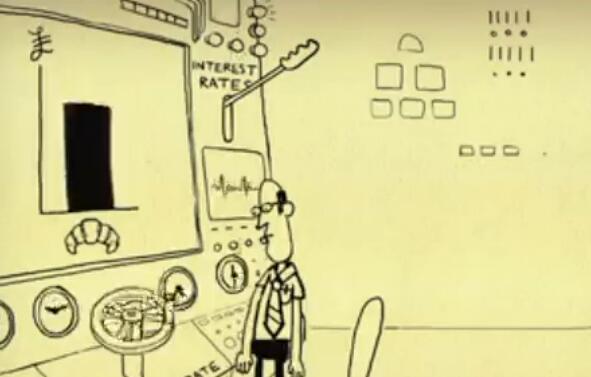60 Second Adventures in Economics—Number five: The Impossible Trinity.
《60秒经济学探奇》第五节:三元悖论
Most countries trade with one another—which is usually pretty good for all involved
大多数国家同别国相互贸易,这通常对所有参与者都有好处,
but it does mean it's a bit harder for each to keep control of its own finances.
但这也意味着,每个国家更难控制本国财政。
There are three things that governments are particularly keen on.
政府特别热衷于三件事。
They like to keep the exchange rate stable so that import and export prices don't suddenly jump around.
他们希望保持汇率稳定,这样进出口价格就不会大幅跳动。

They also like to control interest rates so they can keep borrowers happy without upsetting savers.
他们还希望控制利率这样就能让借款人开心,不至于触怒储蓄者。
And they like to let money flow in and out of their country without causing too much disruption.
而且他们希望资金流进出自己的国家,而不导致太多破坏。
But there's a problem when you try to do all of these at once.
但试图一口气做好所有这些,是有问题的。
Say for example, the Eurozone tries to lower its interest rate (to boost investment) and reduce unemployment.
例如,欧元区试图降低利率,增加投资,减少失业率。
Money flows out to earn higher interest rates elsewhere.
资金会流出到利率更高的国家。
Exchange rates drop, which causes inflation, so the Euro interest rate is forced back up again.
汇率下降,导致通胀,这样欧元利率又会被迫回升。
You can either fix your exchange rate and let money flow freely across national borders
你可以调控汇率,让资金自由跨国界流动。
but have no control over your interest rates. Or control your interest and exchange rates
但此时无法控制利率。也可以控制利率和汇率。
but then you can't stop the capital flowing in and out.
但此时却无法停止资金流入和流出。
But, like an overzealous triathlete—you can't do all three at once.
就像一个过分热心的三项全能选手,你不能一口气做三件事。













